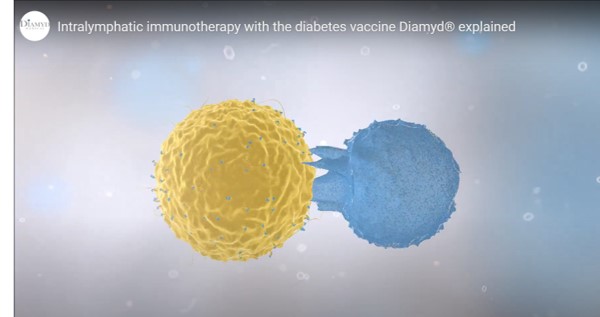The US Food and Drug Administration (FDA) has given approval to Janssen Pharmaceutical for Simponi Aria (golimumab) in the treatment of patients two years of age and older with active polyarticular juvenile idiopathic arthritis (pJIA). The regulator has also extended the active psoriatic arthritis (PsA) indication for the same patient population.
According to Janssen, Simponi Aria is the first and only fully human anti-tumor necrosis factor (TNF)-alpha biologic agent administered by intravenous (IV) infusion approved for pediatric use in both pJIA and PsA.
Simponi Aria is a 30-minute IV infusion administered by a healthcare professional once every eight weeks after initial doses given at weeks zero and four.
FDA approval for the treatment was based on results from the Phase III GO-VIVA clinical trial.
Related: Eli Lilly Begins Phase III Study of an Arthritis Drug to Reduce Cytokine Storm in COVID-19 Patients
“This latest FDA approval of Simponi Aria for pediatric use in active pJIA and active PsA not only brings a new option to young patients living with these diseases but also adds to the growing body of evidence for this treatment,” said Mathai Mammen, MD, PhD, Global Head, Janssen Research & Development, Johnson & Johnson in a news release from the company.
Mammen added that, “For more than 20 years, we at Janssen have been committed to researching anti-TNF biologic agents for immune-mediated diseases and are encouraged to expand treatment options for these patients.”
JIA is a group of disorders characterized by arthritis lasting for at least six weeks. It affects children under the age of 16, with approximately 300,000 children in the US afflicted with some form of JIA. The polyarticular form of JIA is the most common and is characterized by inflammation in more than four joints, resembling adult rheumatoid arthritis (RA). PsA in pediatric patients is a rare JIA subtype involving both joint inflammation and skin lesions associated with psoriasis similar to adult PsA.
Since there is significant heterogeneity among these disorders, additional treatment options are warranted for the conditions.
“For far too long, children with pJIA or PsA have had limited treatment options,” said Seth D Ginsberg, co-founder and president of the Global Healthy Living Foundation and CreakyJoints. “This approval represents an important step forward for these children and their families.”
TNF-alpha Inhibitors
TNF-alpha is a cytokine involved in systemic inflammation. As such, TNF inhibitors are widely used to treat inflammatory conditions such RA, psoriasis, PsA, inflammatory bowel diseases (such as Crohn’s and ulcerative colitis) and ankylosing spondylitis.
Excess amounts of circulating TNF are blocked endogenously in healthy individuals; however, this is compromised in people with rheumatic conditions, and therefore high levels of TNF in the blood, leading to increased inflammation. TNF inhibitors control inflammation in the joints, gastrointestinal tract and skin to help alleviate symptoms.
Simponi Aria is a fully human anti-TNF-alpha monoclonal antibody that targets both the soluble and transmembrane bioactive forms of human TNF-alpha.
There are six different TNF inhibitors that are FDA approved for the treatment of rheumatic diseases. The medications can be used alone or in combination with other drugs such as prednisone, methotrexate, hydroxychloroquine, leflunomide or sulfasalazine. Simponi Aria is administered along with methotrexate for the treatment of RA.
The GO-VIVA Clinical Trial
GO-VIVA is a Phase III open-label, single arm, multicenter study conducted across nine countries. In the study, treatment was administered to 127 JIA patients between the ages of two and 17 that had active polyarthritis in five or more joints. These patients did not show a complete response to treatment with methotrexate after at least two months. GO-VIVA was conducted as a post-marketing requirement under the Pediatric Research Equity Act (PREA) following the initial approval of Simponi Aria for adults with moderately to severely active RA in 2013.
GO-VIVA was designed to determine the dosing of Simponi Aria in children with respect to achieving drug levels and exposures similar to those shown to be safe and effective in adults with moderately to severely active RA. It has been established that active pJIA and PsA in pediatric patients and adult RA show disease similarities.
Results from the trial demonstrated that pharmacokinetic exposure of Simponi Aria was consistent with two Phase III clinical trials of the drug in adult patients with moderately to severely active RA and active PsA. The efficacy was also generally consistent with responses in adult patients with RA, as were adverse reactions with respect to the established safety profile of the treatment in adult patients with RA and PsA.
“Due to the limited availability of pediatric patients for inclusion in clinical trials, it can be challenging to build clinical studies for this young patient population,” said Daniel J. Lovell, the Joseph E. Levinson Professor of Pediatric Rheumatology at Cincinnati Children’s Hospital Medical Center.
He said, “Given these challenges, I am pleased to see Janssen advance the approval of a new treatment option for pediatric patients with pJIA and PsA – an important milestone in the treatment of these complex, heterogeneous diseases.”












Join or login to leave a comment
JOIN LOGIN